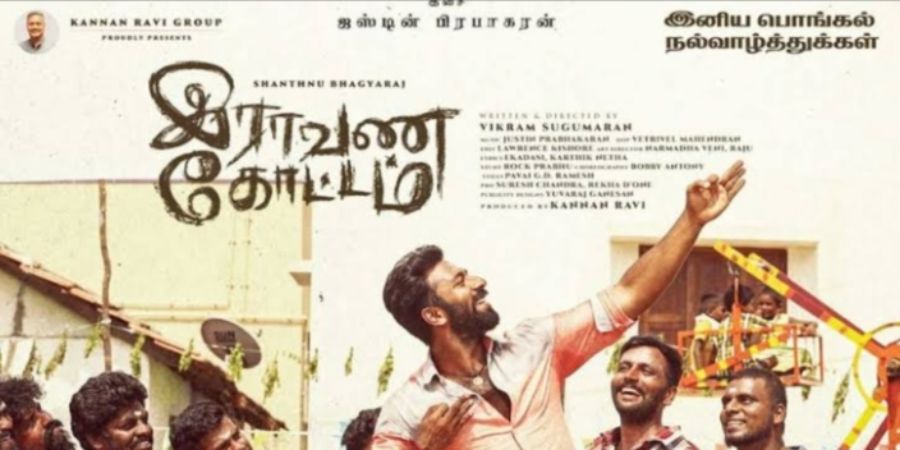

Raavana Kottam by Vikram Sugumaran begins with a shot of Prabhu's Bose doing meditation. Nine additional heads can be seen looming over his shoulders as the frame widens. Instead of resembling his likeness, these heads stand in for a staggering array of national figures, from Abdul Kalam to Periyar, each with their own unique political ideas. It is obvious that the director intends to portray his interpretation of Raavanan as a synthesis of the admirable traits of the aforementioned leaders. But about midway through the movie, I started to question whether the ten heads represented all the concepts Vikram squeezed into his rural drama.
Cast: Prabhu, Ilavarasu, Sanjay Sarvanan, Anandhi, and Shanthnu
Vikram Sugumaran is the director.
Raavana Kottam tries to be a lot of things at once.
Except for Bose, the characters in Ravaana Kottam have a shocking lack of depth. In the movie, none of the other characters seem to have a clear desire, and we don't really get a sense of who they are as people. Senguttuvan, played by Shanthnu, is a charcoal burner by trade, but he is hardly ever shown in action. Bose doesn't even blink when he makes a choice that would jeopardise his ability to support himself. Senguttuvan, on the other hand, wins Indira over since he is the first man to forcibly kiss her in public! You read correctly. She refers to the man as her husband rather than locking him in. Without demonstrating to us how their friendship has organically developed,
At its foundation, Raavana Kottam seeks to convey the idea that everyone is a nobody in the face of a corrupt society and that, in the absence of effective leadership, even the most noble people are susceptible to becoming the devil's pawns. With such a compelling central theme, the movie might have been an engaging analysis of the moral dilemmas of a young person split between pride and betrayal. But Senguttuvan and his character arc receive very little attention in the movie. Even his pivotal turn towards the dark side at the crematorium, where he allowed his caste pride and wrath to cloud his morality and friendship, is portrayed in the most peculiar and unassuming manner imaginable. He quickly transitions from saying, "Madhi is my brother," to, "I challenge that low caste person."
Raavana Kottam wasn't able to strike the correct balance between portraying caste politics as they are practised in rural Tamil Nadu and promoting equality. The choice of Prabhu and Ilavarasu to portray the leaders of a powerful and oppressed caste, respectively, reveals the producers' intentions. The constant allusions to Muthuramalinga Thevar and the complete lack of such homages to Dalit leaders are the cherry on top.
